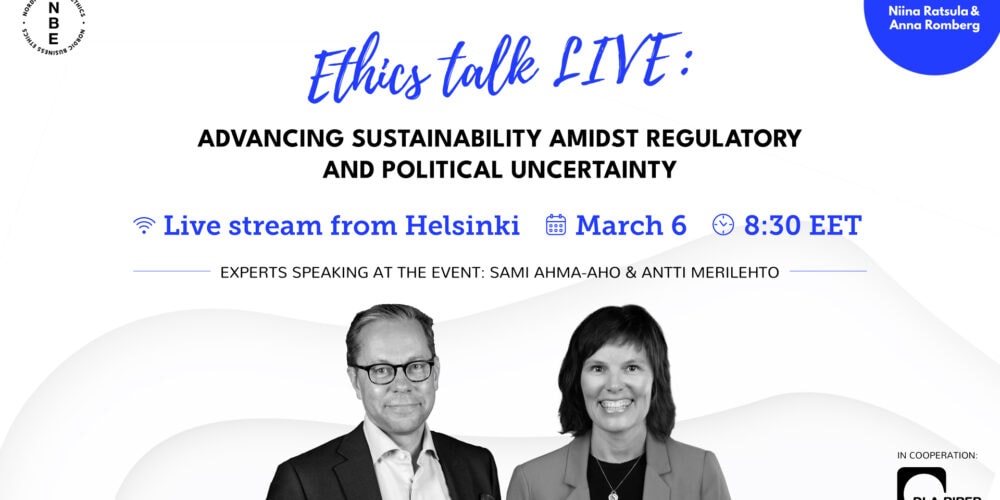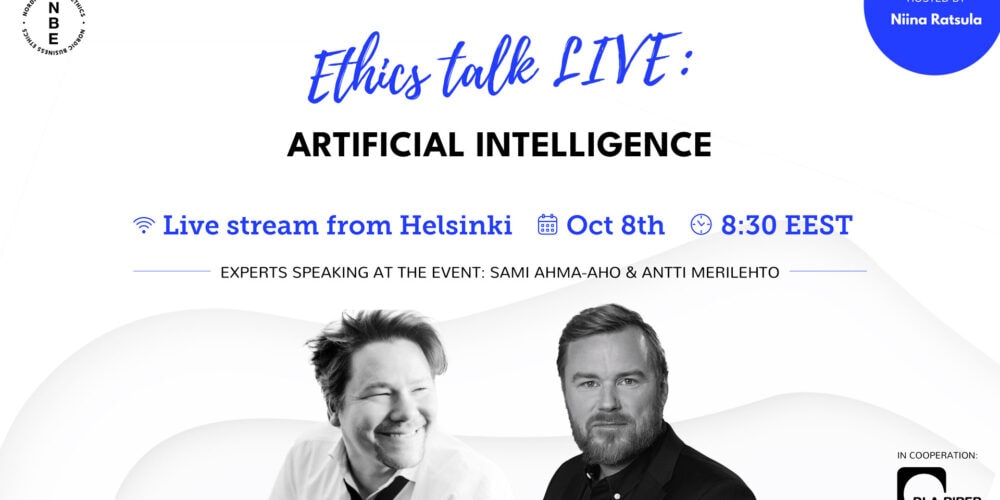Ethics in a time of crisis
Trade sanctions is a topic that currently is not only on the lips of ethics and compliance professionals, but widely discussed in media and at dinner tables. Regardless of whether we want it or not, business and politics is interlinked and this has become very clear in the response to the war in Ukraine.
The international community is intensifying sanctions on individuals, companies, products and business sectors in Russia. International companies are responding by revisiting their approach to conducting business in Russia. Self-sanctioning has become a hot topic and various forms of boycotts are portrayed in social media. Individuals are taking a stand and the western world is united in terms of protecting the values of democracy, the right to self-determination and freedom of speech. Companies not only have to relate to formal obligations and trade sanctions, but to expectations from the greater public, employees and customers.
More than just a technical compliance procedure
The easy task is to conduct a sanctions screening – the challenging task is to evaluate whether what is legal is the right thing to do. As decision makers and ethics and compliance professionals we have to ensure that we make well informed decisions – that will withhold scrutiny today and tomorrow.
In our latest EthicsTalk LIVE we discussed several difficult questions. Some questions that we could answer and some where we had to agree that there is no right or wrong answer.
- Is it ethical to conduct business in Russia?
- Is it unethical to “abandon” your Russian colleagues?
- Is it ethical to collect “PR points” from statements relating to the war?
- Are we willing to apply the same standards in future conflicts?
Situation in Russia raises ultimately a concern for human rights
Alexandra Belmonte from A.P. Moller – Maersk described the various type of considerations that Maersk have had to make. As a key player in the shipping industry the company has had to consider how to balance various perspectives. Some think all shipping should be suspended, others advocate for that ordinary Russians should have access to basic goods. Alexandra shared how the legal aspects had to give way to ethical and stakeholder aspects. “Even though the ordinary people are not the target of the sanctions, they are the ones who pay the highest price for it. Losing access to free media and the ability to seek information is raising many human rights concerns.”
Aleksi Pursiainen is providing advice to international companies on how to navigate the current extremely complex situation. Where some make bold statements on exiting the Russian markets as a matter of policy, others are making the same decision as a necessity as it is no longer commercially viable to conduct business in Russia or they are not able to get paid. Another group of companies are experiencing counter sanctions and are more limited in even considering an exit. It is easy to judge companies from media statements, while the reality within companies are more complex.
According to Aleksi, self-sanctioning is a real phenomenon, but it’s not a new phenomenon. “There are many companies who could legally and practically be in Russia, but have to make this difficult decision now whether to stay or go.”
Ramsey Jurdi deepened the topic of complexity by reminding us of how connected the international business community is. According to Ramsey, we are currently witnessing the biggest sanctions event for the generation of sanction lawyers:
“Sanctions are typically categorized into three schemes: asset blocking, export controls and sectoral sanction. During the past 3 months we have seen action in all of these three categories.”
Are we willing to uphold the same standards in a future conflict?
At the beginning of the TALK the hosts Anna and Niina reminded us about the complexity of the topic and promised to ask also the hard questions. With all the support that is flowing into Ukraine one can ask how this will look like in a year or two. Will companies communicate as openly about when they are planning to continue to do business with Russia and will we be able to uphold the same standards in a similar future conflict?
Business ethics is about making sure that longer term impacts from multiple stakeholder perspectives are considered. There has perhaps never been a better situation to practice this than the horrific situation that we are in right now.
Did you miss the Ethics Talk LIVE? You can watch the event recording in our youtube channel.



